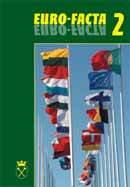Dialog prawny stron stosunku zobowiązanioweg z udziałem małżonka — po reformie polskiego prawa małżeńskiego majątkowego z dnia 17 czerwca 2004 roku
Legal Dialogue of the Obligation Relation Parties with the Participation of a Spouse-After the Polish Law of Matrimonial Property Amendments
Author(s): Michał PawełkowskiSubject(s): Law, Constitution, Jurisprudence
Published by: KSIĘGARNIA AKADEMICKA Sp. z o.o.
Keywords: family prevention codification
Summary/Abstract: Legal Dialogue of the Obligation Relation Parties with the Participation of a Spouse-After the Polish Law of Matrimonial Property Amendments Under the Law of June 17th 2004 The matrimonial property law, which regulates not only the property relations between spouses themselves but also between one of the spouse and his/her personal creditor, has particular significance in free market economy in which the spouses are the subject of numerous civil law (obligatory) relations as not “consumers” but as “entrepreneurs”. The last amendments of the law from June 17th 2004 introduced new legal institutions to the Polish system which have for their object, due to the governmental justification on the project of changes in family and prevention codification, combining two goods: the spouse’s (spouses’) creditors interest and spouse – debtor family interest remaining in the system of the common property. Above all, the author submitted to more profound reflection the new legal institutions introduced by the regulation of June: facultative and obligatory spouse’s agreement (art. 37 § 1 and 41 § 1 family prevention codification), the spouse’s objection to the spouse’s intentional activity to manage the common property (art. 36[1] fpc) as well as the common property management itself which, in relation to the hitherto existing regulation, is treated more liberally as, at the present time, each of the spouse can manage the common property himself and practically without any limits (art. 36 § 2 fpc). One can claim that, on the one hand, the legislator protects the creditor’s just interest by enabling him future execution from the common spouses property, conditioning the possibility on the creditor’s providence which is – gaining the spouse – debtor’s agreement to contract obligation which absence do not cause legal activity invalidity (art. 41 § 1 fpc). On the other hand, the family interest is fairly protected by profound enumeration of legal activities undertaken by one of the spouses to the validity of which the agreement of the other spouse in necessary (art. 37 § 1 fpc). The reflection is not only focused on the spouses’ substantive law situation, their responsibility for the obligations but they also relate to the creditor’s legal situation, who can demand satisfaction for his claim on the judicial proceedings. It seems that balancing interests of the two parties of the obligatory relation and their property protection has achieved only the partial objective. However, this appraisal would only be verified properly by still not existing interpretation of the regulations carried out by courts and legal doctrine.
Journal: Euro-Facta
- Issue Year: 2010
- Issue No: 2
- Page Range: 407-425
- Page Count: 19
- Language: Polish

